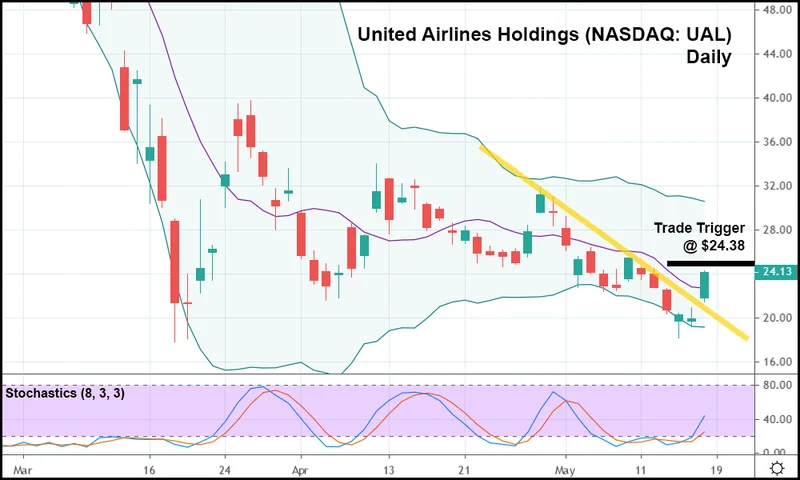Let’s get one thing straight. When a company like United Airlines releases its quarterly earnings, the first thing you see is the headline number: "United Beats Expectations!" The stock pops in after-hours trading, the suits on Wall Street high-five, and CEO Scott Kirby probably gets to use the gold-plated coffee machine for a week.
But I've been doing this too long to fall for the cheap seats trick.
You have to look past the shiny adjusted earnings-per-share number—$2.78, a whole sixteen cents better than the geniuses with calculators predicted—and look at the real story. And the real story is that United missed on revenue. According to the United Airlines' summer earnings and profit outlook top estimates, but revenue falls short report, they brought in $15.23 billion when they were supposed to hit $15.33 billion. It might sound like pocket change for a company that big, but it’s the canary in the coal mine. It tells you that despite all the noise, all the new planes, and all the press releases, they aren’t bringing in as much cash as everyone thought.
This is the classic corporate shell game. It's like a hot dog vendor bragging that his profit-per-hot-dog is way up, while conveniently forgetting to mention he sold 100 fewer hot dogs today because he started charging for napkins. You can squeeze profits out of a rock if you try hard enough, but you can’t fake top-line growth. And right now, United's growth story has a few screws loose.
The 'Premium' Illusion
CEO Scott Kirby’s grand plan is to turn United into the airline for rich people. He’s in an all-out war with Delta to win over "affluent travelers." The strategy involves spending a boatload of money on new lounges, refreshed cabins, and complimentary Wi-Fi that probably cuts out the second you fly over a large puddle. They're expanding their routes to exotic, Instagram-friendly places like Greenland and Mongolia. It all sounds very impressive.
And to be fair, premium-cabin revenue is up 6%. Great. But let's look at the other side of the plane. To fill all these new seats—they increased flying capacity by a whopping 7% while their rivals are pumping the brakes—they had to slash prices. Unit passenger revenue, the money they make for flying one person one mile, dropped. It fell 3.3% for domestic flights and took a nosedive of 7.1% for international flights.
This strategy is bold. No, 'bold' isn't the right word—it's reckless. They're adding more flights and bigger planes, then desperately cutting fares to keep them from flying empty. Imagine the scene: you're sitting in your "refreshed" seat, smelling the new vinyl, trying to connect to the free Wi-Fi, and you realize the only reason you're on this half-empty flight to Greenland is because the ticket was mysteriously cheaper than a bus ride to Cleveland. Is this what winning looks like?

And don't even get me started on the loyalty programs. Sales are up 9%, they cheer. Offcourse they are. These programs are just digital prisons designed to lock you into a single airline, promising you a "free" flight to Omaha after you spend the equivalent of a down payment on a small car. It’s a racket, and the fact that it's growing just proves people are desperate.
The whole thing feels like a frantic performance. They want us to believe they're building a luxury brand, but the numbers show... well, they show they're running a high-volume discount operation with a few fancy seats at the front. Which one is it? Can you really be both Tiffany & Co. and Walmart at the same time?
A Forecast Built on Hope
After all this, United turns around and tells Wall Street that the next quarter is going to be even better. They're forecasting earnings between $3.00 and $3.50 per share, blowing past the consensus estimate of $2.86.
This is where I have to laugh. This is the same company that, just a few months ago in the summer, was trimming its forecasts because demand was dipping. Now, after a quarter where they missed on revenue and had to slash fares to fill seats, they're promising a blockbuster holiday season. What changed so dramatically? Did they discover a secret new class of traveler who only flies in Q4 and pays full price?
It just doesn’t track. You can’t simultaneously tell me that you’re struggling to make as much money per passenger and then promise record-breaking profits are just around the corner. It's a forecast built on pure, uncut optimism—or maybe just the hope that investors don't read past the headlines.
Then again, maybe I'm the crazy one here. Maybe Kirby has some 4D chess move I can’t see, and flooding the market with cheap seats is all part of a master plan to bankrupt the competition. But from where I'm sitting, it looks like they're flooring the accelerator on a car that's already leaking oil. They might be going faster for now, but what happens when the engine finally seizes up? And who is going to pay for the repairs?
So, Who's Actually Flying the Plane?
At the end of the day, this isn't just about numbers on a spreadsheet. It's about a fundamental identity crisis. United is telling the world it's a premium airline, but its own data screams that it's competing on price. They're spending like a luxury brand but discounting like a budget carrier. This isn't a strategy; it's a contradiction. And while Wall Street might be happy with the short-term profit beat, I can't shake the feeling that this whole operation is flying on a prayer and a pile of debt. Good luck with that.
